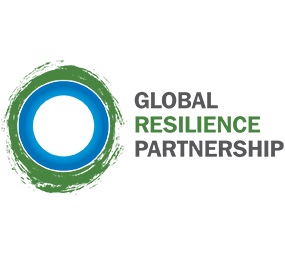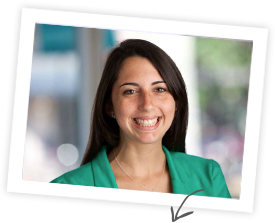Global Resilience Challenge: Tackling resilience problems in the Sahel, the Horn of Africa and South and Southeast Asia
 Live webinar moderated by Stephanie Eichmann
Live webinar moderated by Stephanie Eichmann
Registration for this webinar is open. Please fill in the form below.
Global Resilience Challenge: Tackling resilience problems in the Sahel, the Horn of Africa and South and Southeast Asia
 Tuesday, October 28th, 2014
Tuesday, October 28th, 2014  7am EDT (GMT-4)
7am EDT (GMT-4)
Join development experts from the Rockefeller Foundation and USAID in a webinar focused on the Global Resilience Partnership and the recently launched Global Resilience Challenge. Designed to bring together teams in a new, collaborative, and innovative way to address resilience challenges, the Challenge is a three-stage grant competition that will call on people from across sectors and disciplines to join together to design and foster bold, innovative solutions for some of the toughest barriers to building resilience in the Sahel, the Horn of Africa, and South and Southeast Asia.
The session will provide an overview of the Resilience Partnership and a deep-dive on the Challenge. Substantial time will also be dedicated to answer questions submitted from around the world about the Challenge and application process.
Featured Guest Speakers:
 Sundaa Bridgett-Jones
Sundaa Bridgett-Jones
Associate Director, The Rockefeller Foundation
Sundaa Bridgett-Jones joined The Rockefeller Foundation in 2012. As Associate Director, International Development, she develops Foundation initiatives that contribute to global discourse on international development trends and multilateral processes concerning resilience, equitable growth, gender equality, and innovation.
Prior to joining The Rockefeller Foundation, Ms. Bridgett-Jones was Acting Director for Policy Planning and Public Diplomacy with the U.S. Department of State Bureau of Democracy, Human Rights and Labor. Her previous professional experience also includes serving as an International Affairs Fellow at the Council on Foreign Relations, Director of the Scholars in the Nation's Service Initiative at Princeton University, and Special Assistant to the Assistant Secretary-General for Political Affairs for Asia and the Middle East at the United Nations. She began her career with the U.S. Agency for International Development, where she worked for nearly a decade leading democracy and governance initiatives.
Ms. Bridgett-Jones holds a Master’s degree in Public and International Affairs from the University of Pittsburgh and a Bachelor of Science degree in International Affairs from Georgetown University.

Thomas Beck
Director of the USAID Resilience Secretariat, USAID
Thomas Beck is currently the Director of the USAID Resilience Secretariat, a new position which supports the Agency’s leadership team in ensuring the coherence and achievement of USAID’s priority resilience agenda. Mr. Beck also heads the secretariat of Global Alliance for Action for Drought Relief and Growth, the network of development partners supporting efforts to end drought emergencies in the Horn of Africa, and serves as the USAID Project Manager for the Global Resilience Partnership.
He has extensive experience in the areas of conflict prevention, post conflict reconstruction and international organizations. Mr. Beck was co-leader of a small USAID team which had lead responsibility for drafting the U.S. Strategy for Meeting the Millennium Development Goals which the President presented at the 2010 MDG Summit. He has served also as Senior Advisor to USAID’s Bureau for Food Security and the Office of the Deputy Coordinator for the Presidential initiative, Feed the Future.
Mr. Beck’s other positions at USAID have included Senior Advisor for Conflict Prevention and Peace Building, where he was a leader in introducing conflict prevention into the international development agenda, and Senior Advisor for UN Affairs, where he represented the Agency before a variety of UN bodies and assisted in the reform of the UN’s humanitarian functions. Mr. Beck has served as a consultant on international organizations and conflict and peace building issues.
Mr. Beck is a graduate of Case Western Reserve University Law School and holds an LLM in international law from the London School of Economics and Political Science. As an attorney, he practiced many years in Alaska where his practice included international law and the representation of Alaska Native corporations and non-profit organizations.
 Peter Epanchin
Peter Epanchin
AAAS Science & Technology Policy Fellow, Office of the Global Climate Change Coordinator, USAID
Pete Epanchin is a AAAS Science & Technology Policy Fellow in USAID’s Office of the Global Climate Change Coordinator where he works primarily on climate change adaptation and building resilience to shocks and stresses. Pete’s background is in ecology, conservation biology, and global change. Previously, Pete worked at the EPA’s Office of Air and Radiation where he helped to develop an accounting methodology for carbon dioxide emissions from various types of renewable fuels. Prior to the EPA, Pete was a postdoctoral researcher at U.C. Berkeley where he found climate change to be an important driver of observed changes in bird distributions over the past 100 years. In 2009, Pete received his Ph.D. in Ecology from U.C. Davis; his research focused on the far-reaching effects of an invasive species. Before pursuing his Ph.D., Pete spent five years as a biologist with the U.S. Fish & Wildlife Service. Throughout his work and research he has linked science with policy and has encouraged transparency, information sharing, and collaboration between scientists, policy makers, land and resource managers, and other stakeholders.
 Jospeh Mascaro
Jospeh Mascaro
AAAS Science & Technology Policy Fellow, US Global Development Lab, USAID


 Sundaa Bridgett-Jones, The Rockefeller Foundation
Sundaa Bridgett-Jones, The Rockefeller Foundation

